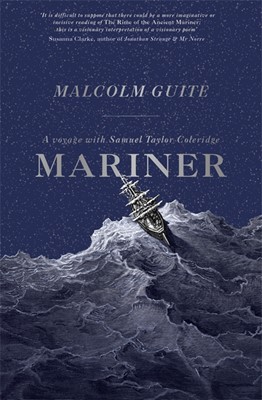
A new biography of Samuel Taylor Coleridge, shaped and structured around the story he himself tells in his most famous poem, 'The Rime of the Ancient Mariner'.
Though the 'Mariner' was written in 1797 when Coleridge was only twenty-five, it was an astonishingly prescient poem. As Coleridge himself came to realise much later, this tale - of a journey that starts in high hopes and good spirits, but leads to a profound encounter with human fallibility, darkness, alienation, loneliness and dread, before coming home to a renewal of faith and vocation - was to be the shape of his own life. In this rich new biography, academic, priest and poet Malcolm Guite draws out how with an uncanny clarity, image after image and event after event in the poem became emblems of what Coleridge was later to suffer and discover.
Of course 'The Rime of the Ancient Mariner' is more than just an individual's story: it is also a profound exploration of the human condition and, as Coleridge says in his gloss, our 'loneliness and fixedness'. But the poem also offers hope, release, and recovery; and Guite also draws out the continuing relevance of Coleridge's life and writing to our own time.
'Forcefully and convincingly argued' - The Telegraph
Though the 'Mariner' was written in 1797 when Coleridge was only twenty-five, it was an astonishingly prescient poem. As Coleridge himself came to realise much later, this tale - of a journey that starts in high hopes and good spirits, but leads to a profound encounter with human fallibility, darkness, alienation, loneliness and dread, before coming home to a renewal of faith and vocation - was to be the shape of his own life. In this rich new biography, academic, priest and poet Malcolm Guite draws out how with an uncanny clarity, image after image and event after event in the poem became emblems of what Coleridge was later to suffer and discover.
Of course 'The Rime of the Ancient Mariner' is more than just an individual's story: it is also a profound exploration of the human condition and, as Coleridge says in his gloss, our 'loneliness and fixedness'. But the poem also offers hope, release, and recovery; and Guite also draws out the continuing relevance of Coleridge's life and writing to our own time.
'Forcefully and convincingly argued' - The Telegraph



